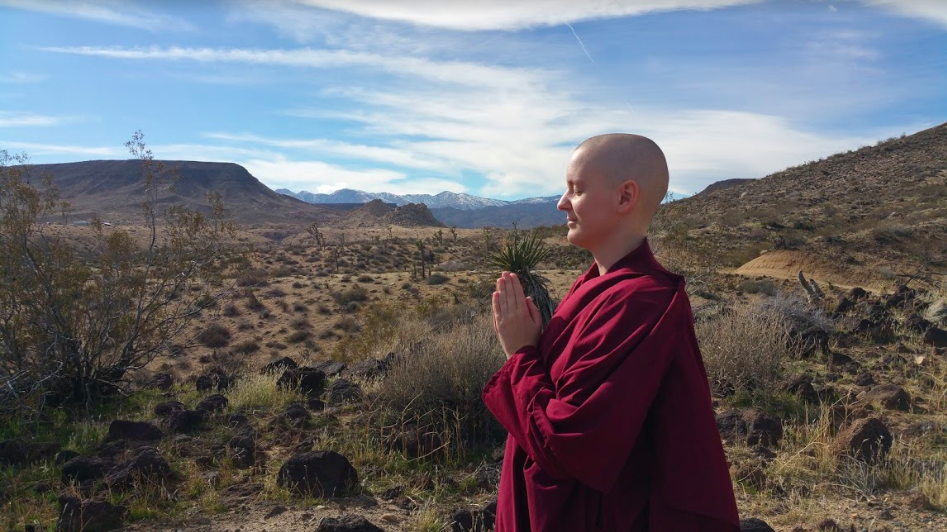Buddhism, Social Engagement and Building Community
Many people come to Buddhism and mindfulness because they are stressed and seeking a place of peace, a refuge from the changeable and troubled times we live in. Their spiritual practice may start as an individual thing, something they do privately and alone. It’s natural that our spiritual practice has to heal suffering in our own hearts in order to make room for us to think about bigger things… But if months or years have gone by and our practice is still completely focused on ourselves and compassion is not becoming part of what we do, something might be out of balance.

An individual is a part of a greater whole. So are we. We exist in dependence upon many causes and conditions. We call these ‘
Everyone is made up of social, physical, spiritual and economic conditions. If you change a person’s conditions, it can cause them to bloom and reach their human and spiritual potential. We need to work to create better conditions for people to thrive and to restrain those who wish to harm others and help them find a better way.
Ideas of karma or impermanence are sometimes used as excuses to do nothing in the face of great suffering, greed and injustice. Actually Buddhists first and foremost should do no harm, and secondly, act with compassion for all beings who have been our dearest friends and mothers in so many past lives.
Karma means action. It is not destiny. Karma can change. Karma means we can create causes and conditions to end suffering. They are not an excuse to be apathetic or to not question systems of oppression or injustice that exploit beings or keep the privileged in power and justify injustice. It is not ok to sit in your peaceful
“As long as space remains, as long as there are those who suffer, may I too remain,
To remove the darkness of the world
To the sick may I be medicine, and to those bereft may I be like a

The Bodhisattva’s way of Life
This is why at Bodhicitta Dakini Monastery we are committed to helping relieve the suffering of the world in practical ways, addressing and dismantling systems of oppression like gender inequality, poverty, racism and
We also do certain practices from the Master Thich Nhat Hanh and keep certain Vinaya elements from the Theravada Vinaya, but the core of our practices are based on the Bodhisattva ideal, calm abiding meditation/
Buddhism, Social Engagement and Building Community
Many people come to Buddhism and mindfulness because they are stressed and seeking a place of peace, a refuge from the changeable and troubled times we live in. Their spiritual practice may start as an individual thing, something they do privately and alone. It’s natural that our spiritual practice has to heal suffering in our own hearts in order to make room for us to think about bigger things… But if months or years have gone by and our practice is still completely focused on ourselves and compassion is not becoming part of what we do, something might be out of balance.

An individual is a part of a greater whole. So are we. We exist in dependence upon many causes and conditions. We call these ‘
Everyone is made up of social, physical, spiritual and economic conditions. If you change a person’s conditions, it can cause them to bloom and reach their human and spiritual potential. We need to work to create better conditions for people to thrive and to restrain those who wish to harm others and help them find a better way.
Ideas of karma or impermanence are sometimes used as excuses to do nothing in the face of great suffering, greed and injustice. Actually Buddhists first and foremost should do no harm, and secondly, act with compassion for all beings who have been our dearest friends and mothers in so many past lives.
Karma means action. It is not destiny. Karma can change. Karma means we can create causes and conditions to end suffering. They are not an excuse to be apathetic or to not question systems of oppression or injustice that exploit beings or keep the privileged in power and justify injustice. It is not ok to sit in your peaceful
“As long as space remains, as long as there are those who suffer, may I too remain,
To remove the darkness of the world
To the sick may I be medicine, and to those bereft may I be like a

The Bodhisattva’s way of Life
This is why at Bodhicitta Dakini Monastery we are committed to helping relieve the suffering of the world in practical ways, addressing and dismantling systems of oppression like gender inequality, poverty, racism and
We also do certain practices from the Master Thich Nhat Hanh and keep certain Vinaya elements from the Theravada Vinaya, but the core of our practices are based on the Bodhisattva ideal, calm abiding meditation/
